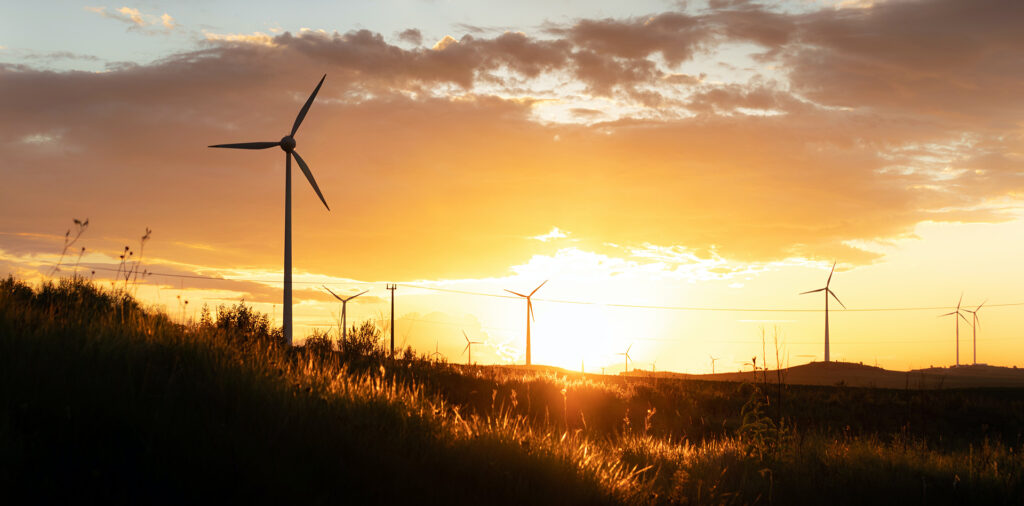On May 18, 2021, an interesting program on renewable energy and the new horizons of the production system was broadcast on Radio CONFAPI, conducted by Giulia di Filippo who hosted Yuri Chianese of Ares2t, who tried to shed some light on the Italian and European panorama .
You can find the original audio of the interview in italian language at this link.
We hear news every day about climate change that is ruining our planet. But there are resources that we can exploit to slow down times and live in a more ecological way. What are, for example, the main models of Eco-Mobility? Are there national and international projects that support the cause? What if we were to talk about costs instead? Here it is the complete interview:
What does Eco-Mobility mean and in what contexts we can apply it?
Eco-Mobility is a broad concept. In fact, it groups together different forms of mobility that we are going to identify considering the fact that they can improve environmental sustainability and actually combining the use of multiple means of transport that can contribute to the reduction of pollutants or greenhouse gases, as in the case of carbon dioxide.
Sustainable mobility is particularly important in urban and industrial areas because in these contexts there is a strong concentration of the population and both private and public means of transport, and traffic, slowing down circulation, increase the level of polluting emissions. Although the most sustainable means are obviously non-motorized ones such as bicycles or walking on foot, in fact, shared means such as public transport and car sharing also contribute. Obviously, let’s not forget the electric vehicles that can make their contribution to eco-sustainability.
The company of which you are founder, Ares2t, deals with new models of mobility and new energies. Can you tell us specifically about these?
Ares2t was born from the will of the six co-founders to give a contribution to the improvement of the ecosystem in which we live, by working on the enhancement of Italian innovation that is born in research centers and projects and whose results often remained “in a drawer”, and proposing to create solutions applicable in an industrial context, therefore usable by client companies.
In 2015, thanks to obtaining a loan from a European accelerator dedicated to renewable energy “INCENSe”, we started the development of a charging optimization platform for electric vehicles and thus our “Smart Electro Mobility” Business Unit was born. From that project we have collaborated directly with Enel and Enel-X, and through a very important European research project, “5G Solutions”, we are partners of Enel-X itself, of Iren and of TIM.
If we were to identify the focus, the primary objective of these mobility projects, what would it be?
The focus of these mobility services is to make the charging processes of electric vehicles in a broad sense more efficient, therefore not only electric cars, but also scooters, e-bikes and in the future even heavier vehicles, with the aim of make the best use of available energy by supporting both individuals and companies in managing the complexity that current and more traditional solutions determine.
You mentioned the European Union’s “5G Solutions” Project. The energy sector is going through a period of great evolution also in our country. What can you tell us about this project?
5G Solutions is very important because it is part of the 5G ecosystem of the city of Turin which is precisely the reference point for all the vertical applications that we are going to test on 5G. It is particularly important for the evolution of innovative electric mobility and intelligent power grid services, so much that one of the most important verticals, the “Smart Energy Living Lab”, deals with precisely this. In particular, in this laboratory, led by Ares2t, and which sees the participation of Enel-X, Iren and TIM, we are developing services that can guarantee, thanks to the contribution of 5G technologies, applications for the intelligent management of both plants and of industrial buildings, therefore in a business-oriented b2b perspective, but also of the intelligent charging of electric vehicles and of the so-called bidirectional V2G electricity network services, which allow electric cars both of individuals and companies to support through services the stability of the electricity grid, since companies make their cars available for their services: a great opportunity where there are fleets with a particularly large number of vehicles.
Why is it important to use renewable energy? Can you also give us some practical examples?
Suppose I am charging my electric car and that at that moment the network needs the energy of my car for a short period of time to adjust the network parameters. 5G allows me to become an energy producer in turn, enabling a specific service, the “Vehicle to Grid”, which allows me to resell the energy at a higher price than the one for which I purchase it. So if I recharge my car at a certain price and then the electricity grid requires part of that energy back, and I am willing to supply it, I generate a profit to support the stabilization of the grid. We have estimated that for each electric car, in perspective, it will be possible to generate a profit of about one thousand euros per year and this is precisely one of the cases that we are developing in 5G Solutions.
In your opinion, what are the expected benefits that 5G could bring to energy stakeholders?
The benefits are various, ranging in a wide field because 5G enables important efficiencies in terms of transmission speed and data processing, allows to reduce the cost of the service and generates energy savings because for the same amount of data transmitted, 5G allows to transmit the unit of data (the bit) at a lower cost and therefore with significant energy savings. The cost is reduced and with the same amount of data transmitted, energy is saved. In a distributed service for regulating the power or frequency of electric vehicles or even from buildings to the grid, without 5G these services would not be available except for large operators or large companies. In this way, thanks to 5G we allow SMEs on the one hand to be part of the system, because 5G would also enable them to manage bidirectional network services, and on the other hand generate value for energy stakeholders because they would have a control method of the network much larger than the current one.
Why should Italian companies invest in renewable energy? Let’s think, for example, of the application of photovoltaic panels on the roofs of companies: are the costs worth the cause?
We start from the basic concept that renewable energies such as the sun, hydrogen and wind are the future and not investing in these fields would mean missing out on certainly important opportunities. It must be said that each company has its own needs and specificities, so the solutions must be studied case by case. Every company should look for the best way to invest in renewable energy according to its characteristics. Furthermore, as we know, we are close to a “Green Deal” which in the near future will make resources available to invest in this type of energy and for companies it will be an opportunity to be seized. As for the photovoltaic panels, they are already a concrete opportunity to be exploited for the company, both for the self-production of energy, therefore the exploitation of energy produced on site for own systems, and for the recharging of company fleets and electrical vehicles. Furthermore, the photovoltaic panel is typically positioned in areas of buildings that tend to be free and therefore goes to use spaces that would otherwise be unproductive.
What are the impacts of these renewable energies?
In addition to the savings and reliefs that companies will be able to access in the face of investments in this field, the importance of the sustainability impact generated by the company should not be overlooked, both in terms of branding and communication and in terms of relationships. To give an example, Ares2t is an Enel supplier and we are directly assessed by Enel’s purchases on the sustainability impact that our corporate behaviors generate. We have found that this is a type of behavior that is spreading more and more and that responsible companies will adopt quite specifically. Therefore we can say that for many companies being sustainable can also open up more business opportunities towards customers who are sensitive to this approach.
So, to summarize, not only costs that are worth the cause, but also valid opportunities that can be exploited. But is Italy a country ready for the use of these renewable energies? And if so, are we able to apply them and make the most out of them or is there a need for support and perhaps more education on the part of each of us?
Surely Italy is a country a little behind compared to the more virtuous countries of Central and Northern Europe that have shown in recent years that they know how to make better use of renewable sources, in particular wind and solar energy. It must be said, however, that Italy has demonstrated over time the ability through its inventiveness to catch up and often become a leader in some fields. For example, in the area of electric mobility, there is a lot of room to become a country that brings important innovations. Certainly the time is ripe and we are seeing that there is a sensitivity that is taking root in the behavior of both people and companies. We believe that every company and every citizen will be called to do their part, even simply by following the behavior trend of others. To conclude, I would say that education is certainly important, but perhaps what matters most are the example and the tangibility of what we are saying. For example, touching with hand the charging stations of vehicles in the streets or seeing the Formula-E racing cars whizzing through the streets of Rome makes it quite clear that what we are discussing now are not just words, but are beginning to be more concrete facts.



